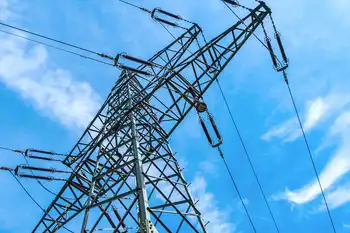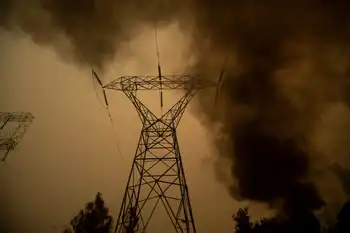Edison: Electricity rates shouldn't fall
MICHIGAN - Detroit Edison, responding in a filing to state utilities regulators, said it shouldn't reduce residential electricity rates in 2007.
But questions about high electricity rates in southeastern Michigan have been raised in recent months, following concerns by some Michigan business interests that claim Edison, a unit of DTE Energy Corp., continues to receive a revenue windfall from rates based on forecasts that assume fewer electricity sales than actually occurred. Last year, the Association of Businesses Advocating Tariff Equity told the commission that a decline in electricity-choice participation by customers could result in an over-collection of revenues by Edison.
Edison officials said there should be no reduction in rates because the company plans on spending about $600 million a year to improve its power plants. Additionally, the utility expects to spend more than $1 billion over the next several years to comply with federal and state emissions requirements at its power plants and $300 million on the installation of an automated metering system intended to improve meter reading accuracy. The deadline to file was June 1.
"We have already begun taking steps to minimize the financial impact these investments will have on our customers, including the implementation of internal programs like our Performance Excellence Process, which will reduce costs while still providing top-quality service," said Robert Buckler, president of Edison, in a statement.
The Performance Excellence Process is DTE's cost-cutting process that includes job cuts and consolidation of some operations. Edison has 2.2 million electricity customers in southeastern Michigan. Officials at the MPSC would not comment, citing the agency's policy on pending cases. DTE's cost-cutting program would reduce the 11,000-person workforce at Michigan's largest energy company by as many as 2,000 jobs, which could include a reduction of up to 1,440 employees of Edison. If Edison's employee base is reduced by that much, it could mean savings of up to $90 million a year, according to the March 23 order issued by the MPSC.
Edison's last rate increase of $335.8 million was approved by the MPSC in November 2004. Officials at the MPSC said reply briefs on the pending rate case are due by Nov. 13 and a final resolution is expected to be announced by the commission by the end of the year.
Related News

Russian hackers had 'hundreds of victims' as they infiltrated U.S. power grid
WASHINGTON - Russian hackers for a state-sponsored organization invaded hundreds of control rooms of U.S. electric utilities that could have led to blackouts, a new report says.
The group, known as Dragonfly or Energetic Bear, infiltrated networks of U.S. utilities as part of an effort that is likely ongoing, Department of Homeland Security officials told the Wall Street Journal.
Jonathan Home, chief of industrial-control-system analysis for DHS, said the hackers “got to the point where they could have thrown switches” and upset power flows.
Although the agency did not disclose which companies were impacted, the officials at a briefing Monday said that there…




